
Fenase Tablet
Manufacturer
Lifeline Remedies India Pvt Ltd
Salt Composition
Diclofenac (50mg) + Serratiopeptidase (10mg)
Key Information
Short Description
Fenase Tablet is a combination of two medicines used to reduce pain and inflammation in conditions like rheumatoid arthritis, ankylosing spondylitis, and osteoarthritis.
Dosage Form
Tablet
Introduction
Fenase Tablet can be taken with or without food. The dose will depend on what you are taking it for and how well it helps your symptoms. You should take it as advised by your doctor. Do not take more or use it for a longer duration than recommended by the doctor.
Directions for Use
Take this medicine in the dose and duration as advised by your doctor. Swallow it as a whole. Do not chew, crush or break it. Fenase Tablet may be taken with or without food but it is better to take it at a fixed time.
Safety Information
Side Effects
nausea vomiting heartburn stomach pain indigestion diarrhea loss of appetite
Alcohol Warning
It is unsafe to consume alcohol with Fenase Tablet.
Breastfeeding Warning
Information regarding the use of Fenase Tablet during breastfeeding is not available. Please consult your doctor.
Pregnancy Warning
Fenase Tablet is unsafe to use during pregnancy as there is definite evidence of risk to the developing baby. However, the doctor may rarely prescribe it in some life-threatening situations if the benefits are more than the potential risks. Please consult your doctor.
How it works
Fenase Tablet is a combination of two medicines: Diclofenac and Serratiopeptidase. Diclofenac is a non-steroidal anti-inflammatory drug (NSAID) which works by blocking the release of certain chemical messengers in the brain that cause pain and inflammation. Serratiopeptidase is an enzyme which works by breaking down abnormal proteins at the site of inflammation and promotes healing.
Quick Tips
Take it with food to avoid getting an upset stomach. Take it as per the dose and duration prescribed by your doctor. It may cause dizziness and sleepiness. Do not drive or do anything that requires mental focus until you know how Fenase Tablet affects you. Avoid consuming alcohol when taking this medicine as it may cause excessive drowsiness and increase the risk of liver damage. Your doctor may regularly monitor your kidney function, liver function and levels of blood components if you are taking this medicine for long-term treatment.
Related Medicines
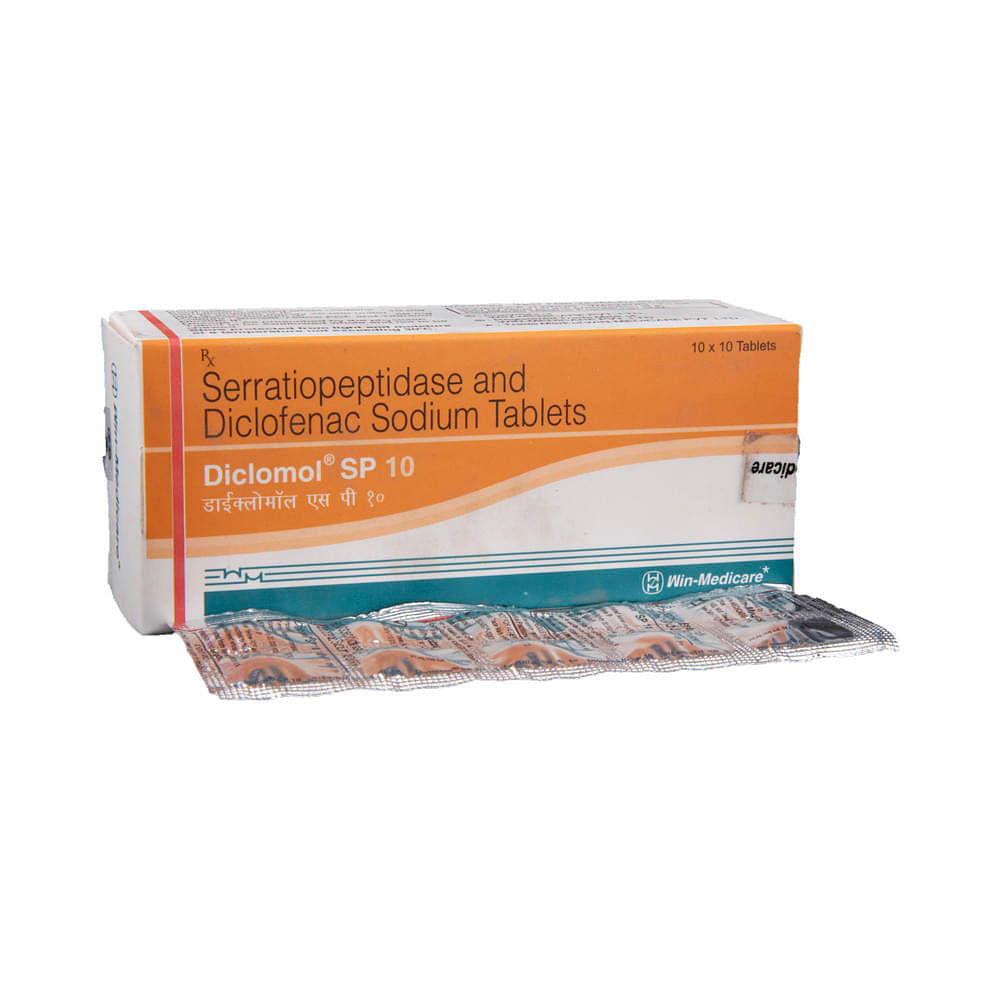
Diclomol SP Tablet
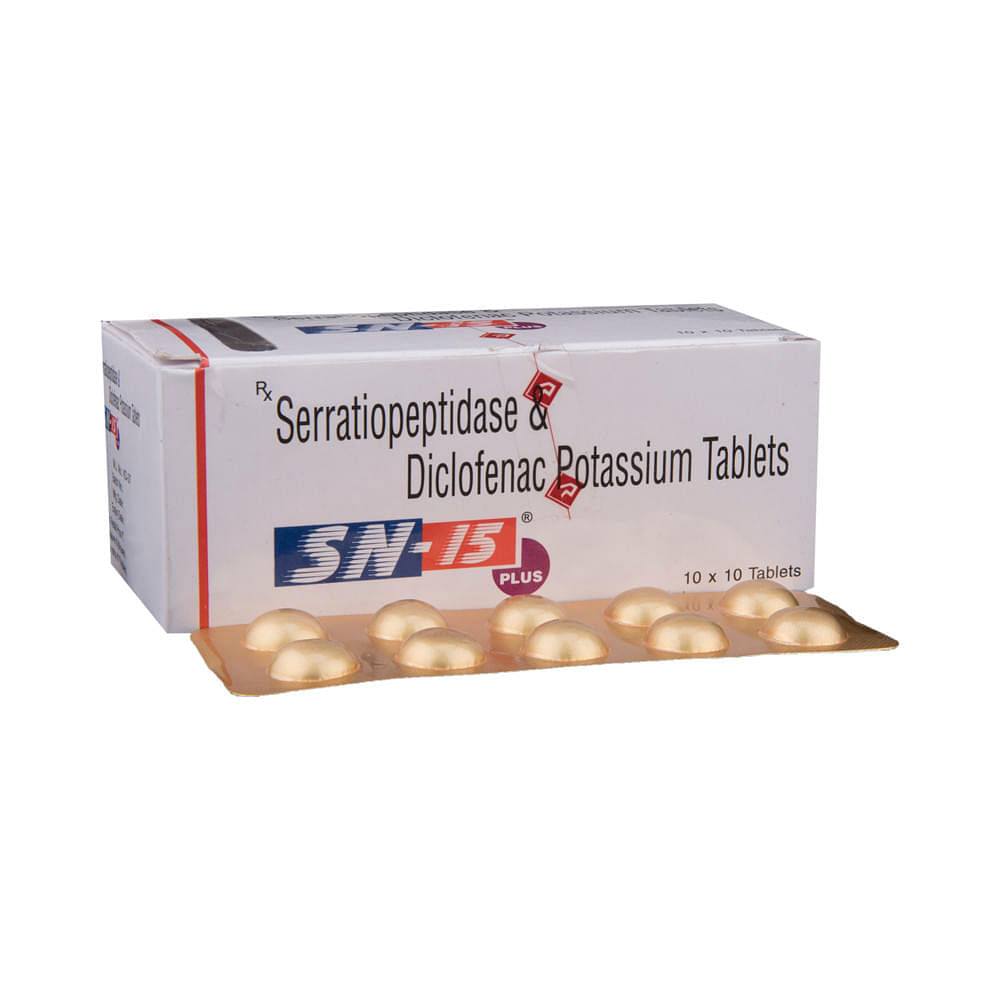
SN 15 Plus Tablet
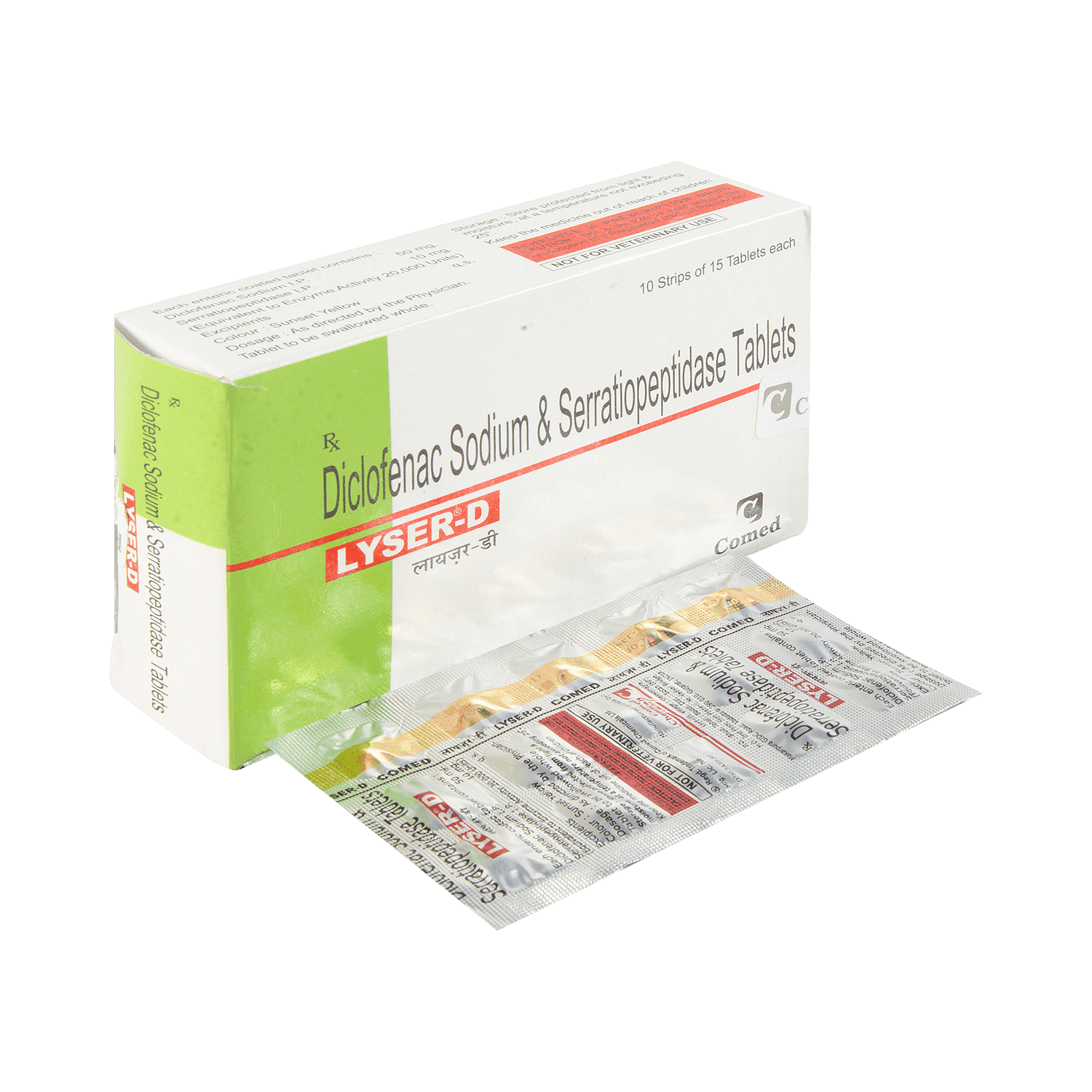
Lyser-D Tablet
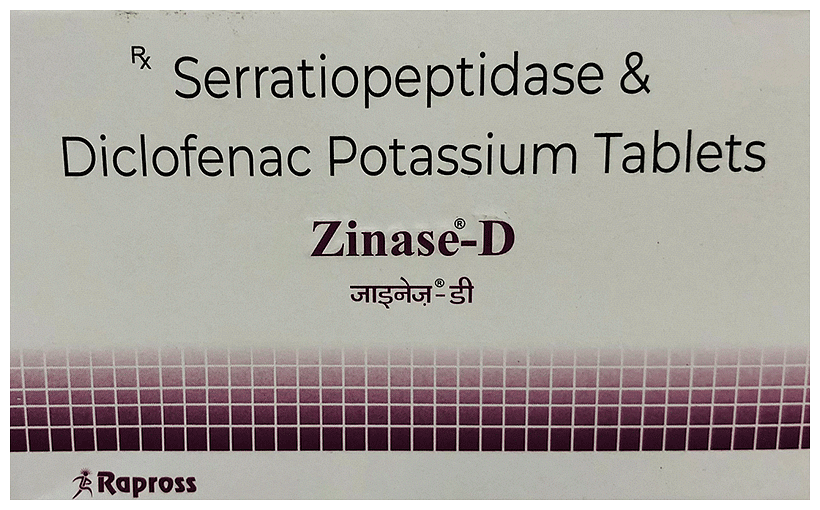
Zinase-D Tablet
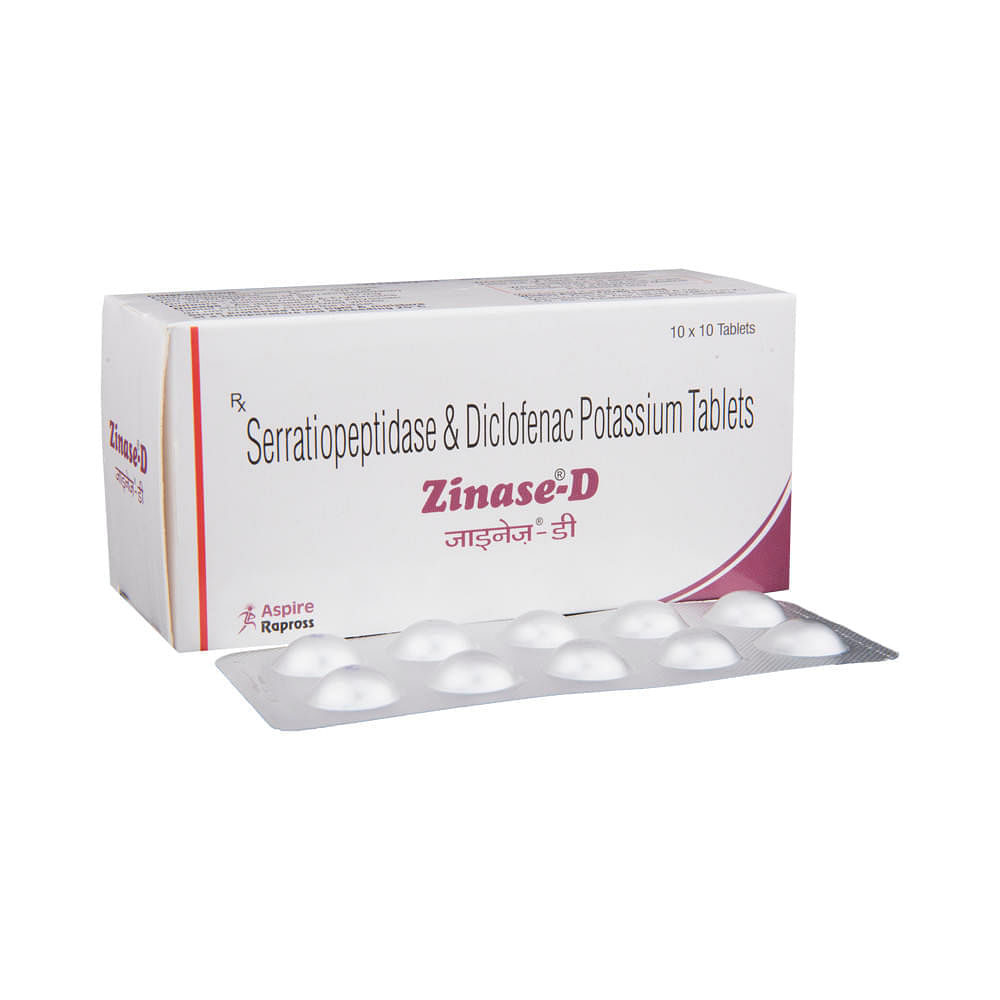
Zinase-D Tablet
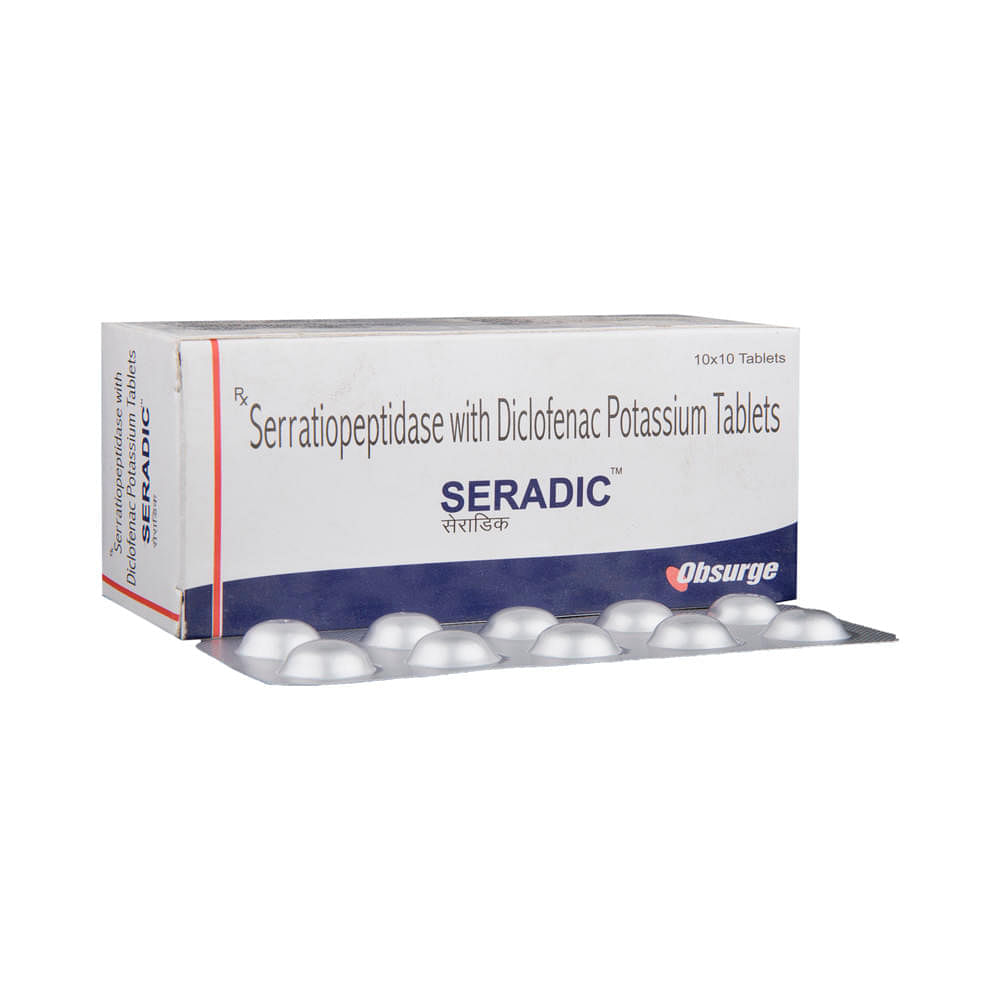
Seradic Tablet
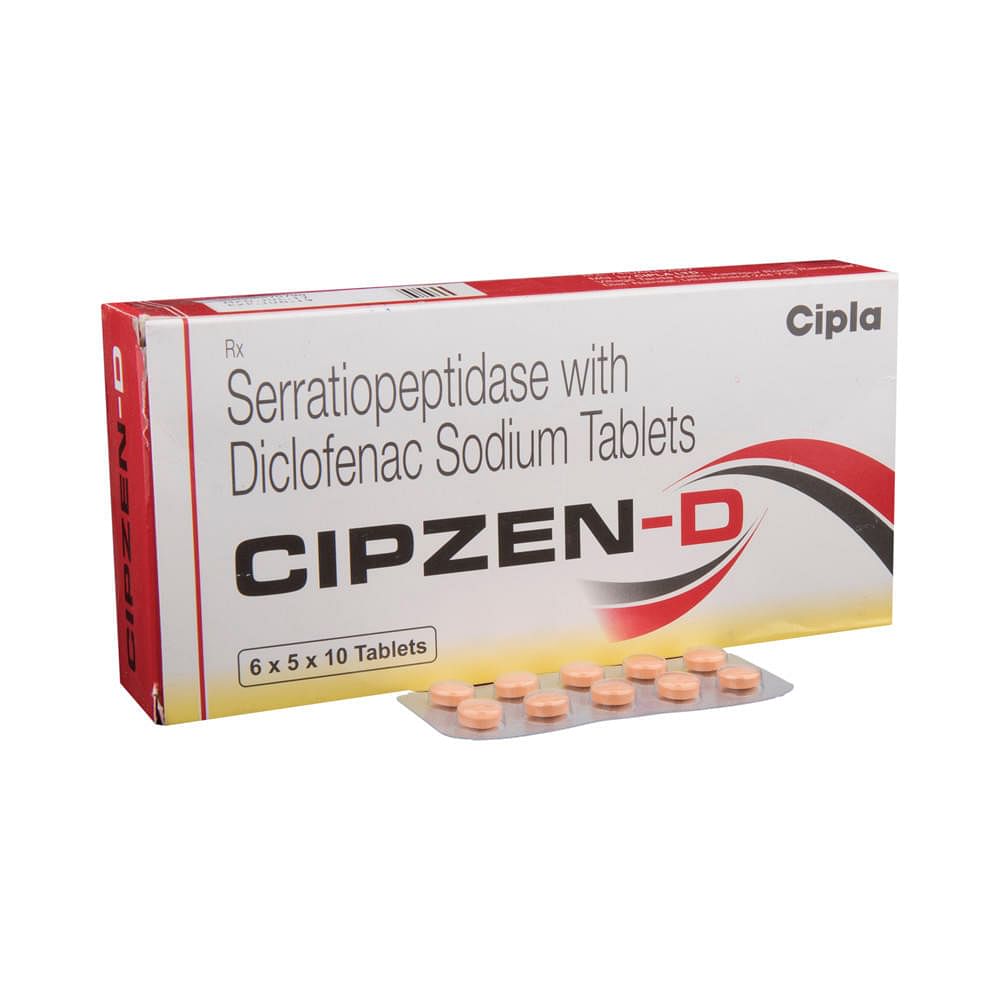
Cipzen-D Tablet
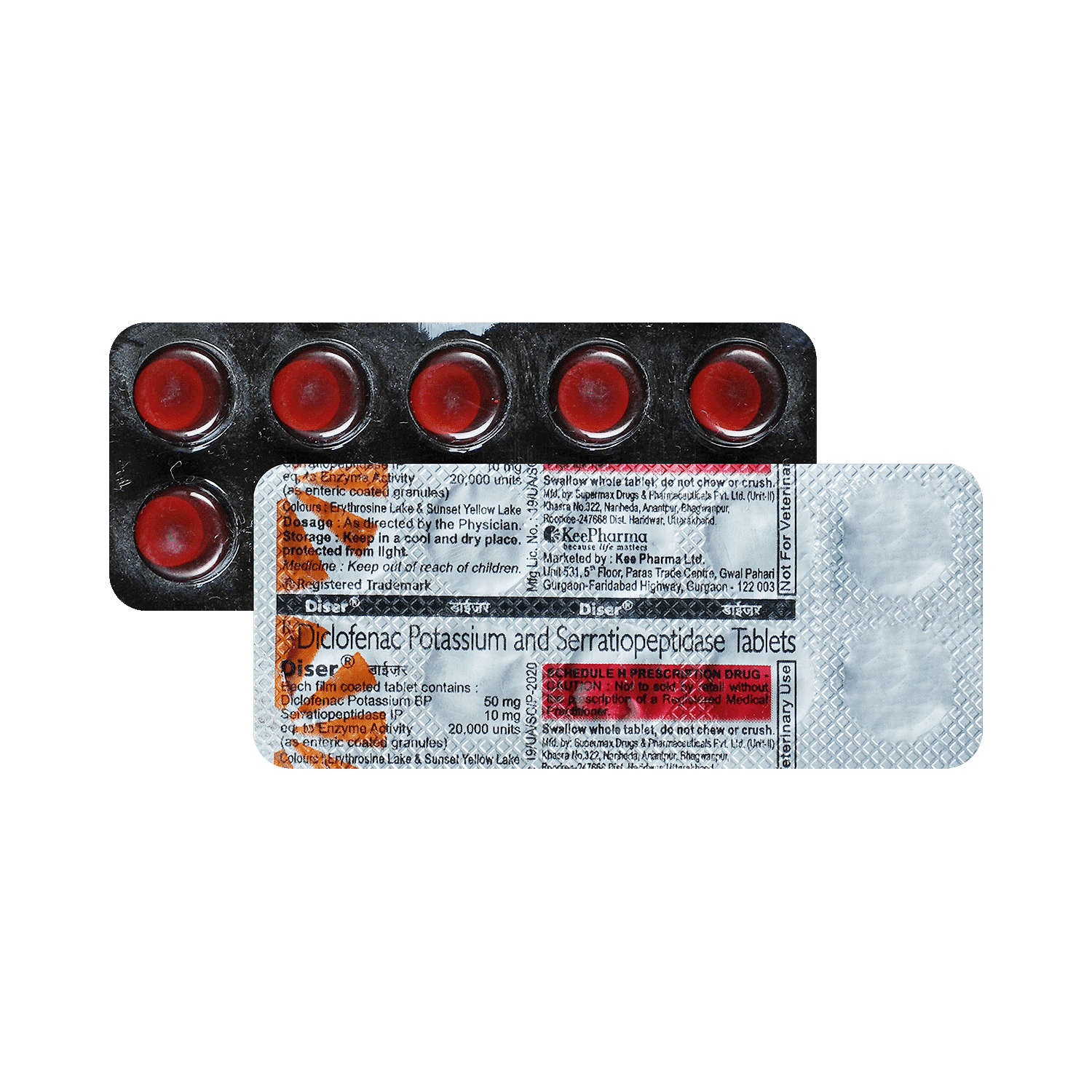
Diser Tablet

Voltase 50mg/10mg Tablet

Rasen 50mg/10mg Tablet
Frequently asked questions
What is Fenase Tablet used for?
Fenase Tablet is a combination medication that helps in relieving pain and inflammation. It works by lowering the levels of chemical substances in the body that cause pain and inflammation.
Is it safe to use Fenase Tablet?
Yes, Fenase Tablet is generally considered safe for most patients. However, some people may experience common unwanted side effects like nausea, vomiting, stomach pain, heartburn, and diarrhea. Inform your doctor if you experience any persistent problems due to the medication.
Can I stop taking Fenase Tablet when my pain is relieved?
Fenase Tablet is usually used for short-term relief of pain. If your physician has advised you to continue the medication, it's essential to follow their instructions and complete the full course as prescribed.
Can the use of Fenase Tablet cause nausea and vomiting?
Yes, taking Fenase Tablet can cause nausea and vomiting in some patients. To minimize this risk, take the medication with milk, food, or antacids. Avoid fatty or fried foods while using this medicine. If you experience persistent vomiting, drink plenty of water or other fluids by taking small frequent sips. Inform your doctor if you notice signs of dehydration.
Can the use of Fenase Tablet cause dizziness?
Yes, some patients may feel dizzy or lightheaded when using Fenase Tablet. If this happens to you, rest for a while and resume once you feel better.
Are there any specific contraindications associated with the use of Fenase Tablet?
Fenase Tablet is not recommended for patients with known allergies to its components or other painkillers (NSAIDs). It's also essential to avoid this medication in patients with a history of stomach ulcers, active or recurrent stomach ulcer/bleeding, heart failure, high blood pressure, liver disease, or kidney disease.
Can I take Fenase Tablet with Vitamin B-complex?
Yes, Fenase Tablet can be taken with Vitamin B-complex preparations. While Fenase Tablet helps relieve pain, Vitamin B-complex can help correct any underlying vitamin deficiency causing symptoms.
Can I take Fenase Tablet for stomach pain?
No, it's recommended to consult a physician before taking Fenase Tablet for stomach pain. This medication may increase stomach acid secretion, which could exacerbate an unknown underlying condition.
What is the storage condition for the Fenase Tablet?
Keep Fenase Tablet in its original container or pack, tightly closed. Store it according to the instructions on the pack or label. Dispose of unused medicine and ensure it's not consumed by pets, children, or other people.


